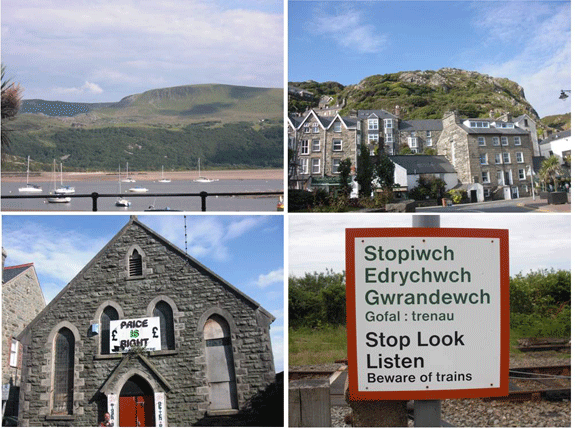Formal and informal English, plus the History of the English Language

Hello, I’m Jane at DailyStep English and welcome to our Audio Blog 🙂
In this blog, we’re going to learn about a subject that is very close to my heart – the English Language. I can’t explain why I feel so passionate about it, but it has always fascinated me.
My students often ask questions like
Why is English so complicated?
Why are there so many ways of saying the same thing in English?
Where did phrasal verbs come from? and
Why are formal and informal styles so different?
I hope that my blog this week will help you to understand all these things.
Then, in the Audio Word Study, you will find some common examples of the difference between formal and informal English.
You can also find out all the topics coming soon in the DailyStep Subscriber Audio lessons. If you are new to DailyStep and you would like to be on our mailing list and also have 5 free lessons, please register here. If you would like to subscribe to our regular Daily Audio Lessons, and also have full access to hear and download the audio in all our blogs, please subscribe here.
So, let’s start with a look at the history of the English language.
The Story of the English Language
by Jane Lawson at DailyStep.com
Who are the English? That’s a very good question, and by going back through history to find the answer, we can also learn about the history of the English language.
The history of the English language.
Britain is a small island and over the centuries and it has been invaded many times. The earliest inhabitants were the Celts. They occupied Britain for possibly 1000 years, but then the Romans invaded in about 55 BC.
The Romans, of course, spoke Latin, and as they brought Christianity to Britain.
Latin was the language of the church, and therefore of all writing at that time – only the monks learned to write! But Latin did not stay as a spoken language after the Romans left in 400 AD.

The real origins of English come from the languages spoken by the tribes that invaded in “the Dark Ages”, from about 450 AD onwards.
They were the Angles, Saxons, Jutes and Frisians, often known as the Anglo-Saxons, who came from Denmark, Holland and Northern Germany.
In fact, even the word “English” comes from the name of their language – “Englisc”, and the name “England” comes from “Angle Land”. The Anglo-Saxon languages gave English its shorter, informal words.
Then more short, simple words were brought by the Vikings, who invaded from Denmark, Norway and Sweden between the years 789 and 1069.
But where did all the longer, more complex words come from?
When the Normans invaded Britain from northern France in 1066, they brought the French language, which had its origins in Latin (as the French were ruled by the Romans for so long).
French words were much more complex than English words. They had more syllables and could be changed according to their usage in a sentence.
The French language became the language of the Royal Court, and therefore also of the ruling and business classes.
Latin was still the language of the church and English was the language of the common, uneducated man.
Anglo-Saxon, Viking, Latin and Norman French languages are the main ingredients of modern English.
The Renaissance period in Europe from the 15th to the 17th centuries, which was a time of great cultural and intellectual change, brought even more influences to English, and of course now, we take words from all over the world!
Words originating from Latin and French are still used in the formal and business language of today.
As a general rule, formal words are longer than informal ones.
For example, the word ‘get’ is informal and the word ‘receive’ is more formal and business-like.
‘Receive’ can be changed into similar words such as ‘receipt’ and ‘receivership’, whereas simple words like ‘get’, with their origin in Anglo-Saxon, can’t be changed, so we have to combine them with other simple words if we want to make more complex meanings.
This is where phrasal verbs come from.
But what happened to the native Celts, the original people of Britain?
The invading Romans, Anglo-Saxons, Vikings and Normans pushed the Celts to the far regions of Britain – to Scotland, Wales, Ireland and Cornwall. The languages of these regions are completely different to English!
But that’s another story!
So, let’s take a look now at some real examples of formal and informal English in this week’s Audio Word Study.
Here is Audio Word Study #089 by Jane Lawson at DailyStep.com
As we have learned in today’s blog, the Story of the English Language, formal and informal English are completely different. Informal words are shorter, and come from Anglo-Saxon, and formal words are longer, and come from French and Latin.
Here are some examples of formal and informal verbs which mean the same thing:
1. Ask for / Request
Examples: I asked for a map because I was lost. (informal)
I requested a map because I was lost. (formal)
2. Set up (phrasal verb) / Establish
Examples: John set up his business in 2008. (informal)
John established his business in 2008. (formal)
3. Find out / Discover
Examples: When did you find out the truth? (informal)
When did you discover the truth? (more formal)
4. Go up / Increase
Examples: The price of wheat has gone up by 10% this year. (informal)
The price of wheat has increased by 10% this year. (formal)
5. Go down / Decrease
Examples: The value of this land has gone down. (informal)
The value of this land has decreased. (formal)
6. Give / Donate
Examples: She gave some money to charity. (informal)
She donated some money to charity. (formal)
7. Help / Assist
Examples: How can I help you? (informal)
How can I assist you? (formal)
8. Look at / Regard
Examples: They looked at each other carefully. (informal)
They regarded each other carefully. (formal)
9. Put up with / Tolerate
Examples: I can’t put up with this noise any more. (informal)
I can’t tolerate this noise any more. (formal)
10. Ask / Enquire
Examples: I’m calling to ask about your services. (informal)
I’m calling to enquire about your services. (formal)
Now, please write your own examples using these words. Try to make them true to your own life, as this will help you to remember them better. That’s all for Audio Word Study #089 on DailyStep.com
If you enjoyed my Audio Blog, please share it. Thank you 🙂
How to speak English fluently and understand fast English
DailyStep English Audio Lessons are designed to help you learn to speak and understand English at the speed that we speak it.
No matter how good your English is, you need to be able to follow a fast conversation in order to participate.
DailyStep English courses are fully accredited and you can get an internationally-recognised certificate for your CV or resume.
How to use your lessons:
How to slow the audio:
How to Start Daily Audio Lessons
✔ Daily Audio Lessons + Premium Audio in my Blog Library
✔ Your lessons never expire – you can take them again any time
✔ Change your level any time
✔ 100% happy or your money back!




